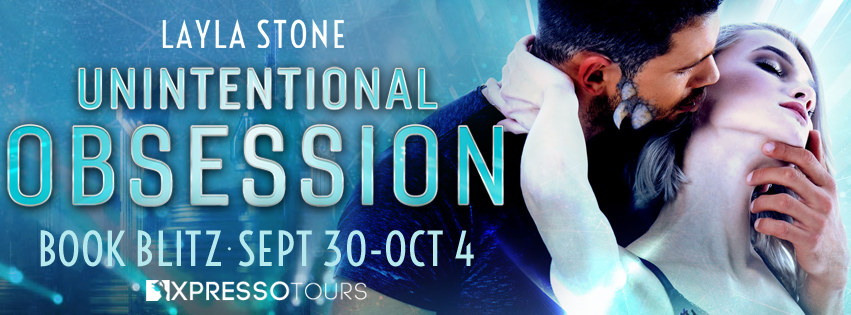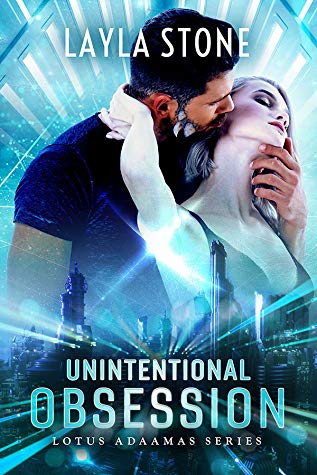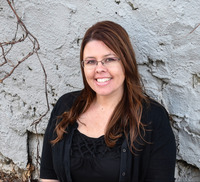 The Winters
Author: Lisa Gabriele
Genre: Adult Suspense/Retelling
Release Date: October 16, 2018
Publisher: Viking
Description:
“From the brilliant
first line to the shattering conclusion, The Winters will draw you in
and leave you breathless...A must read.” —Liv Constantine, author
of The Last Mrs. Parrish
The Winters
Author: Lisa Gabriele
Genre: Adult Suspense/Retelling
Release Date: October 16, 2018
Publisher: Viking
Description:
“From the brilliant
first line to the shattering conclusion, The Winters will draw you in
and leave you breathless...A must read.” —Liv Constantine, author
of The Last Mrs. Parrish
Inspired by Daphne du Maurier’s Rebecca,
a spellbindingly suspenseful novel set in the moneyed world of the
Hamptons, about secrets that refuse to remain buried and consequences
that can’t be escaped.
After a whirlwind romance, a young
woman returns to the opulent, secluded Long Island mansion of her new
fiancé Max Winter—a wealthy politician and recent widower—and a life of
luxury she’s never known. But all is not as it appears at the Asherley
estate. The house is steeped in the memory of Max’s beautiful first wife
Rebekah, who haunts the young woman’s imagination and feeds her
uncertainties, while his very alive teenage daughter Dani makes her life
a living hell. She soon realizes there is no clear place for her in
this twisted little family: Max and Dani circle each other like cats, a
dynamic that both repels and fascinates her, and he harbors political
ambitions with which he will allow no woman—alive or dead—to interfere.
As
the soon-to-be second Mrs. Winter grows more in love with Max, and more
afraid of Dani, she is drawn deeper into the family’s dark secrets—the
kind of secrets that could kill her, too. The Winters is a riveting
story about what happens when a family’s ghosts resurface and threaten
to upend everything.


A Conversation with Lisa Gabriele
Author of The Winters
1. The Winters begins
like a lot of books, with a handsome man sweeping a young woman off her
feet. But at its heart, this is a story about women—our unnamed
heroine, plucked out of her quiet existence; Rebekah, the
dead first wife who haunts her dreams; and Dani, Rebekah’s vengeful
teenage daughter. Did you set out to write a story about female
relationships, power, and sexuality?
Yes. I’m obsessed with female relationships, sex, and power, and how they intersect. These are my favorite things to read and write about. The genesis of this book began with me thinking about the women in Rebecca, and all the ways modern female characters and a new setting would completely change their relationship with each other. Suddenly The Winters became
an exercise in demonstrating how much women have changed in
contemporary times, and how some men, especially rich and powerful ones,
really have not. I mean, think about all the different ways patriarchy still shapes
and molds our lives as women. My narrator certainly has agency, she has
a job of her own that she’s quite good at, and a potential role model
of a single working woman, but despite this, she’s still deeply
susceptible to the
lure of a “happily ever after.” And with Max’s daughter Dani, I got to
play around with some of my worst fears around young women and social
media, on the
difficulty of getting your new boyfriend’s kid to accept you, and about
feminism’s so-called generational divide. Dani is 15 going on 40, an
heiress with a chauffeur, a tutor, and thirty thousand Instagram
followers. She isn’t going to make life easy for her new
stepmother-to-be. And what better wedge for her to use than the memory of her dead (perfect) mother, Rebekah? The relationship between her and the narrator was explosively fun to write. But this time, the primary question that hovers over the narrator’s image of the dead Rebekah isn’t about her sexuality, but rather her role as a mother—a much more loaded question these days.
2. The Winters is inspired in part by Daphne du Maurier’s classic novel, Rebecca—an
instant bestseller, first published in 1938, that has never gone out of
print, reportedly selling 50,000 copies a year. And it’s obvious you’re
a fan. What do you love about it, and what made you use it as the launching point for your novel?
Anyone who knows me knows I’m a big fan of Rebecca.
My mother, who died almost twenty years ago, introduced me to Alfred
Hitchcock’s movie first, and whenever I miss her I reach for it. In the fall of 2016, in the despairing days of the U.S. election, I bought some ice cream and threw in the DVD to drown out the
bad news. But this time, instead of comforted, it left me feeling
deeply uneasy. I had to remind myself that in Daphne du Maurier’s book
Maxim de Winter killed his sexually rebellious first wife, a fact that Hitchcock, due to Production Codes at the
time, erased. I suddenly felt this strong desire to avenge Rebecca and
punish Maxim. So I guess you could say nostalgia inspired me to reread the book, but anger drove me to write mine.
3. Much of The Winters is set at Asherley, Max Winter’s opulent estate in the Hamptons. Why did you choose that setting?
I’ve always been fascinated with Long Island’s moneyed elite; a couple of my favorite books are set there. I loved the storied Gold Coast of The Great Gatsby, and the deceptively serene town in The Amityville Horror. I needed a place that combined history and horror and the Hamptons seemed like a natural choice. However, to pull off the violent conclusion, I also needed a location that wasn’t only private, but remote. In the research stage, I visited the Suffolk County Historical Society in Riverhead and read about Gardiner’s Island. It’s one of the biggest swaths of privately owned land in America, purchased by Lion Gardiner from the Montaukett Indians in the 1600s, in exchange for a large black dog and some Dutch blankets. Today it’s worth more than $125 million dollars so keeping the island in the
family has driven generations of Gardiners to sometimes concoct
nefarious plots. So Winter’s Island was born, as was a motive for
murder. I changed some geographic details, but the rest of its history and topography, its dense forests, the old ruins, the private beach and thick, marshy shores, are the same. Then there’s the mansion. I love a looming turret, so I made Asherley a Queen Anne Victorian—spookier, in my opinion, than the typical center hall design from the Gilded Age. Entering the house, with its paneled walls, oak and marble floors and mullioned windows, the reader falls back in time. The
only modern touch is a dramatic, star-shaped greenhouse, Rebekah’s
pride and joy, lodged, incongruously and a little violently, against the house, a constant reminder that this was once her domain.
4. As our narrator spends more time at Asherley and begins to discover her new family’s dark secrets, The Winters becomes a gripping slow-burn thriller. What are your tricks for building suspense and keeping the reader on the edge of their seat?
E.L.
Doctorow said, “Writing a novel is like driving a car at night. You can
only see as far as your headlights, but you can make the whole trip that way.” With The Winters I never set out to “write a thriller.” I just metaphorically made my headlights a little dimmer and the road ahead a little snakier, but kept the speed the same, (barely) avoiding smashing through the guardrails. Also the whole story is told from one POV. The narrator’s. We are only in her head. We only know what she knows. And she’s fed different versions of the same stories. So who to trust? You can also use short staccato sentences. They ratchet up the tension. Sometimes.
5. Like many fictional politicians—from House of Cards’ Frank Underwood to the Senator in Joyce Carol Oates’ Black Water—Max
Winter is powerful, charismatic, and fiercely ambitious. Why did you
choose politics for Max’s career, and what made you want to dip into
that world?
As I mentioned above, the 2016 U.S. election consumed me, and the subsequent presidency has upended all norms. It’s been a struggle to keep up with the controversies, the
news being, for this former journalist, a constant distraction. But
it’s also a source of inspiration. So I stopped fighting it. Since I
couldn’t get away from the news, I folded some of my current fixations into my book. I didn’t want to date the book, or bog it down in current affairs, but divisive politics, and the
corrosive effects of both social media and (questionable) Russian money
on modern American life all make cameos. Presciently I finished the book at the start of the #metoo movement, which, like my book, demonstrates how important it is to believe women.
6. You’ve
been a journalist and an award-winning producer, in both radio and TV,
for more than twenty years. When (and how) does your journalism
background seep into your novels?
It always does, sometimes subtly and sometimes more obviously, but I am first and foremost a journalist. The books I write require research to get the settings, tone, and era right, but it’s my favorite part of the job. And for me it’s unavoidable. My characters tend to arrive almost fully formed. So when the unnamed narrator of The Winters
insisted she worked on boats, and Max decided to run for reelection in
Suffolk County, I had some research to do. Learning about politics at the
state level and proper boat terminology was interesting and fun. But I
also consult experts. I reached out to a PhD in mortuary archeology to
confirm how many years it would take for a body buried in a shallow
grave to completely turn to skin and bones. And, thankfully, one of my
best friends is a family lawyer, so I ran by her all the details about conservatorships and inheritances. The hardest part was trying to understand the murderous lengths to which some people will go to maintain their wealth and privilege, but one need only turn on CNN these days for that kind of research.
7. The Winters
takes many of its cues from classic novels—a plain unassuming heroine; a
dashing older gentleman; a lavish estate; an inconvenient first wife.
But the
ending is decidedly more modern—even feminist. Without giving too much
away, can you speak to how you went about crafting a contemporary
version of these kinds of novels?
Writing a modern book that that still pays tribute to a beloved classic is a tricky balancing act. I am a huge fan of the ones done well: Jane Smiley’s King Lear redux, A Thousand Acres, Jean Rhys’ The Wide Sargasso Sea (which is actually a prequel to Jane Eyre, which du Maurier herself retold with Rebecca), Curtis Sittenfeld’s Eligible (a hilarious retelling of Pride and Prejudice), and Joanna Trollope’s Sense and Sensibility. The best ones preserve the original’s landmarks, though the terrain is completely different. They’re written in a contemporary style, though a sharp-eyed reader will spot my own iambic hexameter. And while the characters feel familiar, they’re not facsimiles. No character embodies all of these ideas more than Dani Winter, a 15-year old girl with all the traits of the average Millenial, minus any disadvantages. She has everything a girl her age could want, plus total freedom and the run of the house. She plays with her mother’s clothes and makeup, and the
stories she tells about her run completely counter to her father’s.
This presents a very current dilemma for our narrator. Does she believe the man she loves or his bratty kid? Dani becomes, then, a reminder that we longer live in an era where stories men tell about women take primacy over the ones they tell about themselves, as the #metoo movement is proving. Women just aren’t having that anymore. I know Dani’s generation isn’t.
8. Finally, considering the evocative setting of The Winters, where do you think is the best place to read a book like this?
You should read The Winters at one of my favorite hotels, The Chequit Inn, on Shelter Island. You should be sitting on the deep front porch that overlooks the
Peconic River, sipping sweet tea. Funny enough, in a very early draft I
wrote a scene where our teary, breathless narrator, running for her
life, bursts into the lobby of The Chequit Inn demanding to use their phone. They let her. They get her a glass of water and calm her down. They offer her a chair. In the end, the incredible staff at even my imaginary Chequit Inn sucked the tension right out of the scene, so I had to redirect.

 Lisa Gabriele is an author and a award-winning TV producer, writer and director. Her writing has appeared in Vice, Nerve, New York Magazine, Washington Post, New York Times Magazine, Globe and Mail, National Post, Elle and Glamour. Her essays have appeared in several anthologies, including The Best American Non-Required Reading. She’s also the author of the international best-selling S.E.C.R.E.T. trilogy, under the pseudonym L. Marie Adeline, a series that’s been published in more than 30 countries.
http://www.lisagabriele.com/
Lisa Gabriele is an author and a award-winning TV producer, writer and director. Her writing has appeared in Vice, Nerve, New York Magazine, Washington Post, New York Times Magazine, Globe and Mail, National Post, Elle and Glamour. Her essays have appeared in several anthologies, including The Best American Non-Required Reading. She’s also the author of the international best-selling S.E.C.R.E.T. trilogy, under the pseudonym L. Marie Adeline, a series that’s been published in more than 30 countries.
http://www.lisagabriele.com/









 Layla Stone is a Sci-Fi Romance author who is passionate about writing and reading romances. Her books are a blend of science fiction, romance and action adventure.
Layla Stone is a Sci-Fi Romance author who is passionate about writing and reading romances. Her books are a blend of science fiction, romance and action adventure. 














